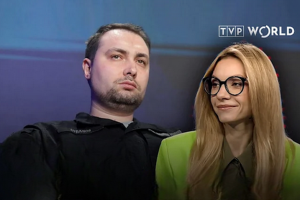E-declarations under threat: who is to blame and what should be done to rectify the problem?
 Andriy Sukharyna, Junior Analyst, DIF
Andriy Sukharyna, Junior Analyst, DIF
On January 30 this year the deadline for submitting electronic declarations of property status of civil servants that hold a position of responsibility and a particularly high position of responsibility. Nearly 50,000 civil servants should submit their e-declarations for 2015. However, two weeks to the end of this period the system has yet to receive 8,000 declarations.
Today, we can constitute that the full operation of the electronic declaration system is under threat. There are a number of reasons for this, but the main one is that the large number of political actors is trying to change the conditions of electronic declarations by not declaring data about gifts, cash, valuables, etc. in their submitted documents. The argumentation: open access to such data stimulates criminals to commit crimes of theft. Moreover, it is precisely these factors that are the most corrupt and therefore must be controlled.
Aside from attempts to rewrite the “rules of declaration” there are other important problems that bodies of government recognize:
- Imperfection and incompletion of software, including external interface;
- Non-conformity of e-declaration forms with the developed samples;
- Non-determination of electronic keys to products;
- Probability of a system crash due to overloads in peak times.
So, we can constitute that there are both objective and subjective threats to the process of implementation of e-declarations. Specifically, those aspects that are objective in nature (independent of political actors) became so due to sabotage by those subjects at the early stage.
The failure of terms of implementation of the system of electronic declaration first and foremost will have a negative reflection on the image and rating of President Poroshenko on the internal and external arenas. Regarding the external consequences they are directly related to granting Ukraine a non-visa regime. Earlier the leadership of the European Union did not raise the issue of visa liberalization at the session of the European Parliament on October 24-27 in Strasbourg, meaning the decision regarding the “visa-free” regime will be adopted only after the final deadline for acceptance of declarations of high-standing officials. Notwithstanding the fact that the consideration of this issue was deferred due to totally other factors, the possible failure of implementation of the e-declarations will have an influence on the final decision of the European Parliament. Besides that, representatives of the EU emphasized on more than one occasion the need to introduce the system of e-declarations to its fullest extent, while the demonstration of the opposite will have an impact on talks with the EU regarding other issues, including sanctions against Russia. Regarding the internal consequences, visa liberalization is one of the most frequently repeated promises of President Poroshenko and failure in this issue will lead to a decline and insignificant support of the president on the part of the people.
Nevertheless, compliance or non-compliance with the deadlines for submission of electronic declarations will change little in the issue of the fight against corruption. The appearance (or the absence of the appearance) of criminal cases based on the results of inspections will send out a more important signal. Be that as it may, the meeting of deadlines of implementation of e-declarations and impermissibility of changes in the rules is a signal to the EU regarding the serious intentions of the Ukrainian leadership on the issue of the fight against corruption.
In connection with the large number of technical problems one can expect that correcting the situation will take time. So, October 30 will not be the final date of implementation of e-declarations. For this reason, the minimum task of the National Agency for the Prevention of Corruption (NAPC) and the government on the whole is not so much how to meet this deadline as much as it is to prove to the EU and its people the position regarding the inevitability and immutability of the principles of declaration and clearly speed up the process of troubleshooting of technical problems and system breakdowns.








